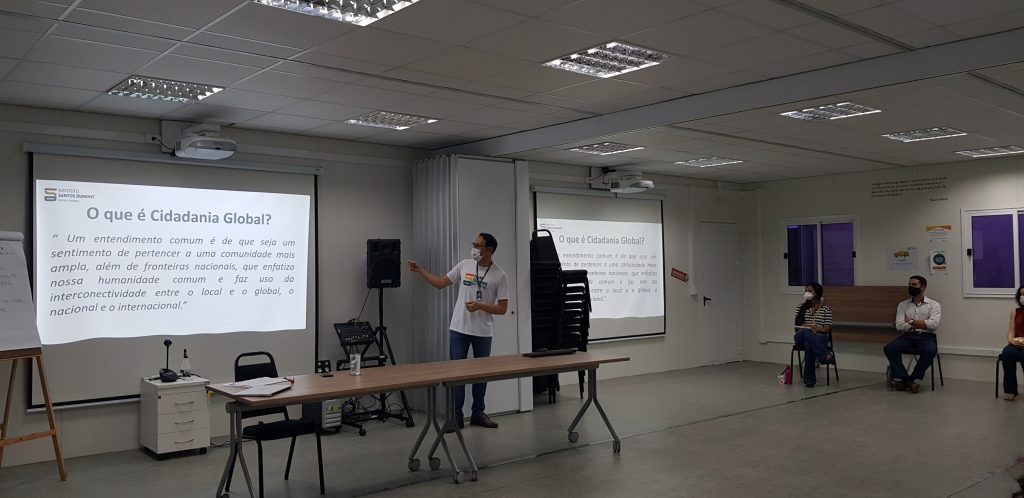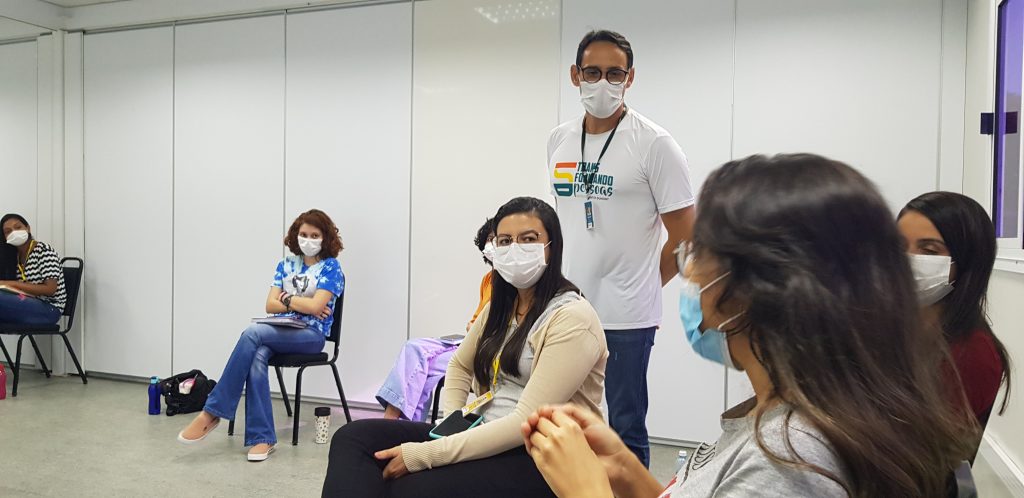
What do you have to do with United Nations (UN) Sustainable Development Goals, femicides, education for an anti-racist society, human rights, the LGBTQIA+ movement, ableism, reducing inequalities, empowering women and girls in science or, for example, the community school?
These and other issues will be addressed until July in “Education for global citizenship” classes at the Santos Dumont Institute (ISD) – a postgraduate course that the Institute has been offering since 2018 and which welcomed the first class of 2021 this Monday, April 14.
The discipline brings together 19 students from Multiprofessional Residency in Health Care for Persons with Disabilities It's from Master's Degree in Neuroengineering at ISD, including professionals in psychology, social work, speech therapy, physiotherapy, biomedicine and biomedical engineering.

THINK GLOBALLY, ACT LOCALLY
“If I were to summarize what we intend to share throughout the semester, I would say that it is to think globally and act locally. This maxim is not mine. It is from the sociologist Ulrich Beck and it is this understanding that I belong to something greater than what is around me, that I am connected to this something greater, that I have rights and duties towards this something greater and that this has to do with the fact that I respect my humanity”, said the professor-researcher and general director of ISD, Reginaldo Freitas Júnior, who is leading the course.
Education for global citizenship, he emphasizes, is a strategy of the UN and the United Nations Educational, Scientific and Cultural Organization (UNESCO) considered a priority for education in this century.
CHALLENGES
From this perspective, the class has already received two challenges this semester: Hello Community, in which they will have to translate ISD research projects into language that is accessible to everyone – presenting the essence of the projects in video, infographics or text, for example, so that they can be understood by anyone. The other mission is to identify needs and propose solutions for the Santa Luzia School, in Capoeiras – the largest Quilombola community in RN, which suffers from structural problems and other deficiencies that can be addressed with proposals that, of course, integrate the community's perspective.
Curious to see the results?
Follow here and on the Institute's social networks, on the pages @isdnarede.
Text and photos: Renata Moura – Journalist / Ascom – ISD
Communication Office
comunicacao@isd.org.br
(84) 99416-1880
Santos Dumont Institute (ISD)
It is a Social Organization linked to the Ministry of Education (MEC) and includes the Edmond and Lily Safra International Institute of Neurosciences and the Anita Garibaldi Health Education and Research Center, both in Macaíba. ISD's mission is to promote education for life, forming citizens through integrated teaching, research and extension actions, in addition to contributing to a fairer and more humane transformation of Brazilian social reality.













